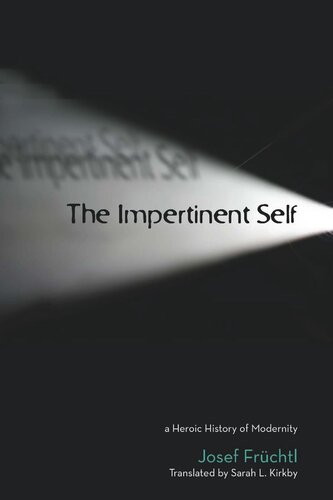

Most ebook files are in PDF format, so you can easily read them using various software such as Foxit Reader or directly on the Google Chrome browser.
Some ebook files are released by publishers in other formats such as .awz, .mobi, .epub, .fb2, etc. You may need to install specific software to read these formats on mobile/PC, such as Calibre.
Please read the tutorial at this link: https://ebookbell.com/faq
We offer FREE conversion to the popular formats you request; however, this may take some time. Therefore, right after payment, please email us, and we will try to provide the service as quickly as possible.
For some exceptional file formats or broken links (if any), please refrain from opening any disputes. Instead, email us first, and we will try to assist within a maximum of 6 hours.
EbookBell Team

5.0
30 reviewsThe Impertinent Self provides a philosophical and cultural theory of modernity by constructing a parallel between the philosophical self and the hero figure found in certain cinematic genres. Früchtl argues that modernity is not unified and should be conceived as a phenomenon consisting of three strata: the classical, the agonist, and the hybrid. He demonstrates this by following a dual trajectory: the shift in the concept of the self from German idealism to Romanticism and so-called postmodernism, and the evolution of the hero figure in the Western and in crime and science fiction movies. Früchtl takes a clear position within the ongoing discussion in the humanities and social sciences about modernity, a discussion that, in light of the work of Foucault, Lyotard, and Habermas, has too often neglected the importance of Romanticism. Similarly, he embraces the role of film and popular culture in modern society.